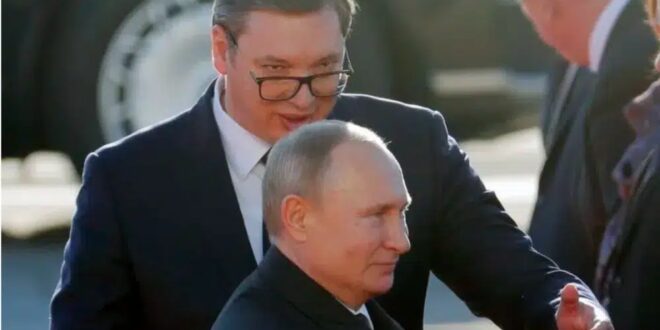All arguments against Serbia’s membership in NATO boil down to emotions, Serbia’s military neutrality is a political phraseology created by a political compromise, and the announced training of 5,000 military special forces is a dangerous tendency to create class layers within the Serbian Army, said the executive in an interview for the Autonomija portal. director of the Council for Strategic Policies, Nikola Lunić.
According to him, the national interest is still an imagination, even though that imagination costs everything in Serbia the most.
During that time, Russia has “the greatest influence and its deluded sleepers” in Belgrade, including aggressive intelligence potential that it uses through hybrid warfare and sophisticated influence in the Serbian public, Lunić believes.
He warned that Russian influence in Serbia was more sinister before the invasion of Ukraine and after February 24, 2022, when it began, and the propaganda turned into war propaganda, prohibited by the Constitution of Serbia.
Lunić also says that the assessments of the media and populist analysts in the West that “Serbs are little friends of the Russians” and allies of Russia are not correct.
“It is true that the Russians are waging an active hybrid war against Serbia, a long-term hybrid war, offering the people of Serbia bigger and bigger delusions, and offering explicit material benefits to individuals. And this can be seen in certain media, and through the performances of pseudo-analysts and through various misinformation and propaganda,” says Lunić.
He believes that sooner or later, if “this level of confrontation in the world, intolerance and delaying the peace solution” continues, Serbia will have to think about the nationalization of NIS.
“The West has restricted financial flows to Moscow. That is why the existence of profitable companies outside the borders of Russia, such as NIS, is of strategic importance to them. From the profits of NIS, they can easily finance pseudo-analysts and quasi-media that would work in their interest,” said Lunić.
The announcement of 5,000 special forces should, Lunić points out, be of greatest concern to the Army of Serbia itself, because it creates an elite in terms of the level of income and the level of privileges enjoyed by a part of the army.
“The second aspect is how much we, as a country with demographically limited potential, can generate 5,000 specialists. It is a specialist training that must be carried out very rigorously with clear and uncompromising criteria. Any reduction of criteria in that segment of special units can generate very big consequences,” he adds.
 Eurasia Press & News
Eurasia Press & News


